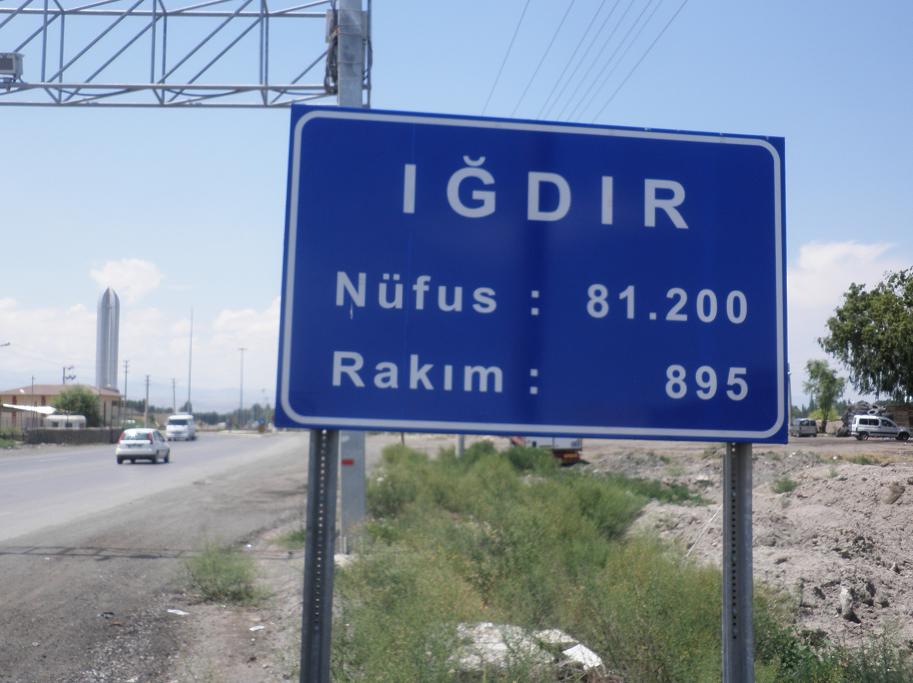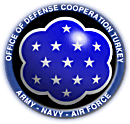|
Medet Serhat
Medet Serhat (1931 in Iğdır – 12 November 1994 in Istanbul) was a Kurdish lawyer, from an aristocratic family of the Igdir branch of the widely dispersed Retkan tribe. He was a prominent member of the Istanbul Bar Association, and was known for having support from both Kurds and Turks from different political viewpoints. He represented many Kurdish and Turkish political and business figureheads, including Behçet Cantürk, who was also assassinated in 1994. Early life and education Serhat was born in Iğdır (then part of Kars Province) to İsa and Bahar Serhat. He graduated from the Faculty of Law at Istanbul University. Career He was imprisoned for 13 months in 1959 before being released. When the Supreme Court quashed the verdict, he was sentenced in a re-trial to 10 months and 20 days in prison. The case related to a group of university students having Kurdish identity, and going through their higher education with Kurdish identity instead of assimilating to a Turkish iden ... [...More Info...] [...Related Items...] OR: [Wikipedia] [Google] [Baidu] |
Iğdır
Iğdır (Turkish ; ku, Îdir or ; hy, Իգդիր, Igdir, also ) is the capital of Iğdır Province in the Eastern Anatolia Region of Turkey. History Iğdır went by the Armenian name of Tsolakert during the Middle Ages. s.v. "Igdir," Armenian Soviet Encyclopedia, 1978, vol. 4, p. 309. When the Spanish traveler Ruy González de Clavijo passed through this region in the early 15th century, he stayed a night in a castle he called Egida, located at the foot of Mount Ararat. Clavijo describes it as being built upon a rock and ruled by a woman, the widow of a brigand that Timurlane had put to death. Because modern Iğdır has no such rock, and is a considerable distance from the Ararat foothills, it is believed that medieval Iğdır was located at a different site, at a place also known as Tsolakert, now called Taşburun. Russian excavations there at the end of the 19th century discovered the ruins of houses and what was identified as a church, as well as traces of fortificatio ... [...More Info...] [...Related Items...] OR: [Wikipedia] [Google] [Baidu] |
Erzurum
Erzurum (; ) is a List of cities in Turkey, city in eastern Anatolia, Turkey. It is the largest city and capital of Erzurum Province and is 1,900 meters (6,233 feet) above sea level. Erzurum had a population of 367,250 in 2010. The city uses the double-headed eagle as its coat-of-arms, a motif that has been a common symbol throughout Anatolia since the Bronze Age. Erzurum has winter sports facilities and hosted the 2011 Winter Universiade. Name and etymology The city was originally known in Armenian language, Armenian as Karno K'aghak' ( hy, Կարնոյ քաղաք), meaning city of Karin, to distinguish it from the district of Karin (wikt:Կարին, Կարին). It is presumed its name was derived from a local tribe called the Karenitis. Darbinian, M. "Erzurum," Armenian Soviet Encyclopedia. Yerevan: Armenian Academy of Sciences, 1978, vol. 4, p. 93. An alternate theory contends that a local princely family, the Kamsarakans, the Armenian off-shoot of the Iranian House of K ... [...More Info...] [...Related Items...] OR: [Wikipedia] [Google] [Baidu] |
Can Dündar
Can Dündar (, born 16 June 1961) is a Turkish journalist, columnist and documentarian. Editor-in-chief of center-left ''Cumhuriyet'' newspaper until August 2016, he was arrested in November 2015 after his newspaper published footage showing the State Intelligence MİT sending weapons to Syrian Islamist fighters. One of the "best known" figures in Turkish media, Dündar has written for several newspapers, produced many television programs for state-owned TRT and various private channels including CNN Türk and NTV, and published more than 20 books. Dündar is the recipient of the International Press Freedom Award by the Committee to Protect Journalists. In 2016, Can Dündar, together with Erdem Gül, were awarded the Prize for the Freedom and Future of the Media, by the Leipzig Media Foundation, lead partner of the European Centre for Press and Media Freedom. Since June 2016, he has lived in exile in Germany, with an arrest warrant against him in Turkey. Currently he is editor ... [...More Info...] [...Related Items...] OR: [Wikipedia] [Google] [Baidu] |
Counter-Guerrilla
Counter-Guerrilla ( tr, Kontrgerilla) is the Turkish branch of Operation Gladio, a clandestine stay-behind anti-communist initiative backed by the United States as an expression of the Truman Doctrine. The founding goal of the operation was to erect a stay-behind guerrilla force to undermine a possible Soviet occupation. The goal was soon expanded to subverting communism in Turkey. The Counter-Guerrilla initially operated out of the Turkish Armed Forces' Tactical Mobilization Group ( tr, Seferberlik Taktik Kurulu, or STK). In 1967, the STK was renamed to the Special Warfare Department ( tr, Özel Harp Dairesi, ÖHD). In 1994, the ÖHD became the Special Forces Command ( tr, Özel Kuvvetler Komutanlığı, ÖKK). In Turkey there is a popular belief that the Counter-Guerrilla are responsible for numerous unsolved acts of violence, and have exerted great influence over the country's Cold War history, most notably for engendering the military coups of 1971 and 1980. The militar ... [...More Info...] [...Related Items...] OR: [Wikipedia] [Google] [Baidu] |
Human Rights Foundation Of Turkey
The Human Rights Foundation of Turkey (HRFT) ( tr, Türkiye İnsan Hakları Vakfı, TİHV) is headquartered in Ankara. The organization is committed to treating torture survivors and documenting human rights violations in daily bulletins, monthly and annual special reports in Turkish and English languages. History and awards The HRFT was established in 1990 on initiative of the Human Rights Association. Besides the HRA 32 individuals became the founders of the HRFT. Offices for the treatment of torture survivors have been set up in Ankara, Istanbul, Izmir, Adana and Diyarbakir. The HRFT does not accept money from institutions that contribute to human rights violations. The work of the HRFT is supported by a large number of volunteers and donations from individuals. Among the various national and international institutions that support the HRFT are: the UN, the Council of Europe, the Red Cross The International Red Cross and Red Crescent Movement is a Humanitarianism, human ... [...More Info...] [...Related Items...] OR: [Wikipedia] [Google] [Baidu] |
Taraf
''Taraf'' ("Side" in Turkish) was a liberal newspaper in Turkey. It had distinguished itself by opposing interference by the Turkish military in the country's social and political affairs. It was distributed nationwide, and had been in circulation since November 15, 2007. On July 27, 2016, the newspaper was closed under a statutory decree during the state of emergency after the 2016 Turkish coup d'état attempt, due to its alleged links with the coup plotters' Gülen movement. Overview ''Taraf'' has published a series of highly-controversial stories that revealed the involvement of the Turkish military in daily political affairs. The revealed documents, such as coup plans that involved the bombing of historical mosques in Turkey ( "Sledgehammer" coup plan) and bombing of a museum (Operation Cage Action Plan), significantly damaged the social image of the Turkish military. The sources that leaked such critical insider information to ''Taraf'' are still unknown. The response of ... [...More Info...] [...Related Items...] OR: [Wikipedia] [Google] [Baidu] |
Zaman (newspaper)
''Zaman'' (, literally "time" or "era"), sometimes stylized as ZAMAN, was a daily newspaper in Turkey. ''Zaman'' was a major, high-circulation daily before government seizure on 4 March 2016 (the circulation was around 650,000 as of February 2016). It was founded in 1986 and was the first Turkish daily to go online in 1995. It contained national (Turkish), international, business, and other news. It also had many regular columnists covering current affairs, interviews, and a culture section. The newspaper originally supported the Justice and Development Party (AKP), but became increasingly critical of that party and its leader, Turkish president and former prime minister Recep Tayyip Erdoğan, particularly after the AKP closed the 2013 December investigation into corruption. On 4 March 2016, in what activists and international media groups criticized as another blow to press freedom in Turkey, control of the newspaper was seized by the government. The takeover was motivated by ... [...More Info...] [...Related Items...] OR: [Wikipedia] [Google] [Baidu] |
Ergenekon (organization)
Ergenekon () was the name given to an alleged clandestine, secular ultra-nationalist organization in Turkey with possible ties to members of the country's military and security forces. The would-be group, named after Ergenekon, a mythical place located in the inaccessible valleys of the Altay Mountains, was accused of terrorism in Turkey. Some believed Ergenekon was part of the " deep state". The existence of the "deep state" was affirmed in Turkish opinion after the Susurluk scandal in 1996. Alleged members had been indicted on charges of plotting to foment unrest, among other things by assassinating intellectuals, politicians, judges, military staff, and religious leaders, with the ultimate goal of toppling the incumbent government. Ergenekon's ''modus operandi'' had been compared to Operation Gladio's Turkish branch, the Counter-Guerrilla. By April 2011, over 500 people had been taken into custody and nearly 300 formally charged with membership in what prosecutor ... [...More Info...] [...Related Items...] OR: [Wikipedia] [Google] [Baidu] |
Susurluk Scandal
The Susurluk scandal () was a scandal involving the close relationship among the deep state in Turkey, the Grey Wolves and the Turkish mafia. It took place during the peak of the Kurdish–Turkish conflict, in the mid-1990s. The relationship came into existence after the National Security Council (NSC) posited the need for the marshaling of the state's resources to combat the Kurdistan Workers' Party (PKK). The scandal surfaced with a car–truck collision on 3 November 1996, near Susurluk, in the province of Balıkesir. The victims included the deputy chief of the Istanbul Police Department, a Member of Parliament, and Abdullah Çatlı, the leader of the Grey Wolves and a contract killer for the National Intelligence Organization (Turkey) (MİT), who was on Interpol's red list at the time of his death. The state had been engaged in an escalating low intensity conflict with the PKK since 1984. The conflict escalated in the early 1990s. Towards the end of 1992, a furi ... [...More Info...] [...Related Items...] OR: [Wikipedia] [Google] [Baidu] |
Deep State In Turkey
In Turkey, the deep state ( tr, derin devlet) is an alleged group of influential anti-democratic coalitions inside the Turkish political structure, composed of high-level elements within the intelligence services (domestic and foreign), the Turkish military, security agencies, the judiciary, and mafia. The political agenda of the deep state network purportedly involves an allegiance to nationalism, corporatism, and state interests. Violence and other means of pressure have historically been employed in a largely covert manner to manipulate political and economic elites, ensuring that specific interests are met within the seemingly democratic framework of the political landscape. Former president Süleyman Demirel says that central to the outlook and behavior of the predominantly military elites who constitute the deep state, is an effort to uphold national interests which have been shaped by an entrenched belief, dating back to the fall of the Ottoman Empire, that the country i ... [...More Info...] [...Related Items...] OR: [Wikipedia] [Google] [Baidu] |
Extrajudicial Killing
An extrajudicial killing (also known as extrajudicial execution or extralegal killing) is the deliberate killing of a person without the lawful authority granted by a judicial proceeding. It typically refers to government authorities, whether lawfully or unlawfully, targeting specific people for death, which in authoritarian regimes often involves political, trade union, dissident, religious and social figures. The term is typically used in situations that imply the human rights of the victims have been violated; deaths caused by legitimate warfighting or police actions are generally not included, even though military and police forces are often used for killings seen by critics as illegitimate. The label "extrajudicial killing" has also been applied to organized, lethal enforcement of extralegal social norms by non-government actors, including lynchings and honor killings. United Nations Morris Tidball-Binz was appointed the United Nations Special Rapporteur on extrajudi ... [...More Info...] [...Related Items...] OR: [Wikipedia] [Google] [Baidu] |




